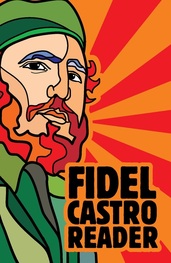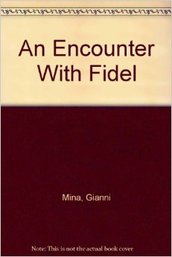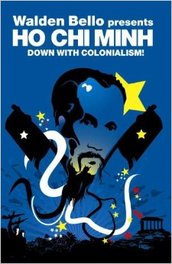A necessary precondition for the establishment of a republic in Cuba under US control was the dismantling of Cuban revolutionary institutions. Tomás Estrada Palma had dissolved the Cuban Revolutionary Party that had been established by Martí (see “José Martí” 6/26/2014) on December 21, 1898. A Representative Assembly, elected in zones controlled by the Government in Arms, constituted the civil authority of the revolution. But its authority was not recognized by the US military government, and it lost the confidence of the people by seeking to dismiss Máximo Gómez from his position of Chief of the Liberator Army. The Representative Assembly dissolved itself on April 4, 1899. Rather than demobilizing, Máximo Gómez kept the revolutionary army quartered, maintaining that Cuba had not yet attained independence. Gómez considered the possibility of mobilizing the Cuban revolutionary forces, in spite of possible negative repercussions, such as an expanded US occupation and possibly US annexation of the island. However, in light of divisions and distrust between Gómez and the civilian leaders and the absence of a consensus to continue the armed struggle, he recognized that this was not possible. The revolutionary army was demobilized, and the soldiers were compensated with funds donated by the US government. Thus, during 1898 and 1899, the political party, representative government and the army, which constituted the three principal revolutionary institutions, were dismantled (Arboleya 2008:66-68; Instituto de Cuba 1998:7-11).
On July 25, 1900, the US military governor convoked elections for a Constitutional Assembly. Suffrage was limited to men who had financial resources or were literate or who had served in the liberation army, thus excluding all women and two-thirds of adult men (Pérez 182). The elections were held on September 15, 1900; thirty-one delegates from three recently formed political parties were elected. Inasmuch as the revolutionary institutions had ceased to exist, the development of a revolutionary plan of action with respect to the Constitutional Assembly was not possible. Political games were played, and candidates without commitment to Cuban self-determination vis-à-vis US imperialist intentions presented themselves as independentistas. The Constitutional Assembly was a confusing mix, with ideological divisions within parties and alliances across parties. And there was the pressure established by the continuous US threat of a permanent military presence, if the results were not in accordance with US interests (Arboleya 2008:67-69; Instituto de Cuba 1998:24-27; Pérez 1995:182). Because of these dynamics, the Constitution did not reflect the experiences of the Cuban national liberation struggle, and it had a “made in the USA” character. As Arboleya writes,
“The Constitutional Assembly was the burial of the Republic of Martí. It created a government whose structure copied in its fundamentals the North American model. It recognized the liberal principles of individual liberties and guarantees for citizens, the separation of church and state, and freedom of religion. Nothing was said in relation to social rights, nor of the obligations of the state in the economy and in the protection and aid of citizens, nor of the strategy that ought to be followed with respect to foreign capital, the monopolies or the large estates” (Arboleya 2008:69).
The political dynamics in Cuba in the period 1898 to 1901 reflect a problem that is still with us. The bourgeoisie has particular interests, and it makes assumptions and formulates concepts with respect to national and global reality in a form that is profoundly influenced by its particular interests. At the same time, the bourgeoisie has substantial impact on the public discourse, influencing the understandings of the popular sectors, and distorting popular understanding in a form that is functional for bourgeois interests. In the case of Cuba, the national bourgeoisie consisted principally of the sugar-producing bourgeoisie, the commercial bourgeoisie, and the large landholders, who had an interest in developing a core-peripheral relation with the United States. They played a pernicious role in generating confusions and distortions in the public discourse, functioning to support the maneuvers of the US interventionist military government in establishing structures that provide the foundation for US neocolonial domination (Instituto de Cuba 1998:3-5).
In order for the people to overcome the distorting influences of the bourgeoisie, charismatic leaders are essential. Charismatic leaders are able to discern what is true and right in relation to the needs of the people and the sovereignty of the nation, and they are able to politically unify the people in defense of its interests. In the critical period of 1898 to 1901 in Cuba, José Martí and Antonio Maceo, who together could have played an important role in forging a political-military struggle in opposition to US imperialism, were gone. Committed revolutionary leaders, such as Máximo Gómez, did their best in a difficult situation, but it was more than they could manage.
Thus, the newly independent Cuban nation was established on a Constitution that reflected the political experience of the United States and the interests of the US national elite, not on a constitution based in the historic Cuban struggle for national liberation. The basic political structures were in place for the emergence of a neocolonial republic.(For discussion of the limitations of the US Constitution with respect to popular democracy in the United States, see “American counterrevolution, 1777-87” 11/4/2013 and “Balance of power” 11/5/2013).
References
Arboleya, Jesús. 2008. La Revolución del Otro Mundo: Un análisis histórico de la Revolución Cubana. La Habana: Editorial de Ciencias Sociales.
Instituto de Historia de Cuba. 1998. La neocolonia. La Habana: Editora Política.
Pérez, Jr., Louis A. 1995. Cuba: Between Reform and Revolution, 2nd edition. New York: Oxford University Press.
Key words: Third World, revolution, colonialism, neocolonialism, imperialism, democracy, national liberation, sovereignty, self-determination, socialism, Marxism, Leninism, Cuba, Latin America, world-system, world-economy, development, underdevelopment, colonial, neocolonial, blog Third World perspective, Cuban Revolution, Constitution of 1901, Platt Amendment


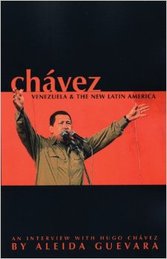


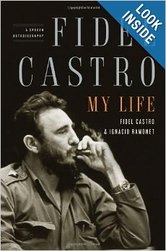
 RSS Feed
RSS Feed



